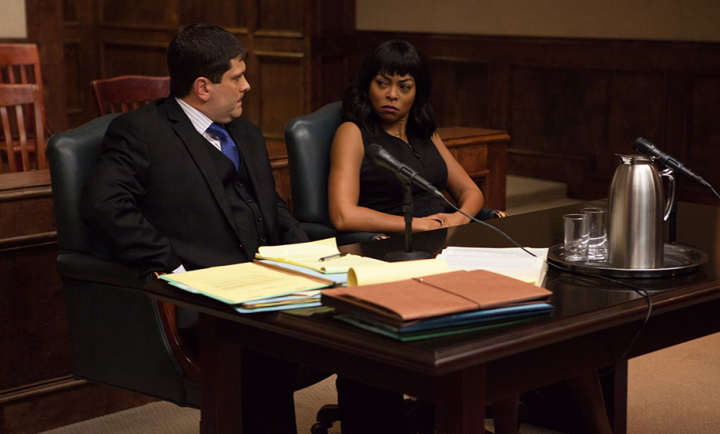To call Acrimony Tyler Perry’s best film is a bit of a misdirect. For as much as its technical accomplishments grant, the director still struggles with things like color timing, weird angles and other out-of-place flourishes. Still, it’s relatively light years ahead of what he’s put out in the past. Not that it amounts to much in the long run, since the film mangles its own narrative so horrifically that the point of no return arrives about five times. Also, its structural goalposts keep shifting and require that certain logical advances be skipped in order to achieve what I’m guessing Perry thinks are surprises, but simply remain inscrutable question marks.

One can assume this script started life as some sort of mea culpa toward accusations of sexism and misogyny in Perry’s previous work. To the extent that Perry is ever thinking about his audience at all (not much, is my semieducated guess), Acrimony goes out of its way in the early going to present a woman-scorned story from the woman’s point of view. The opening, featuring Taraji P. Henson’s Melinda sitting in a court-ordered therapy session, lays out the mission statement: A black woman’s rage is not simply a “stereotype.” She’s not “crazy” for feeling the way she does. She did everything for her deadbeat husband. And this is how he repays her? This is what she gets after two decades of love and support?

So what exactly did this guy do? He cheated on her. They were both kids, still in college, and it was a one-time thing. Or was it? Here’s where things get a little blurry because the film tries to have it both ways. Melinda finds evidence of all the ways he’s betraying her, time after time, but he denies it. Her sisters, who have always hated him, insist she’s right. But is it all true? Is it all in her head?

To talk specifics would be giving a lot away. But Perry’s plotting and story elements always take a back seat to his overall themes. In this case, he’s outed himself more clearly than he ever has before. In creating this bizarro realm built upon providing some counterpoint to the typical “women are all crazy” Hollywood standard, he instead doubles down and takes maximum advantage of built-in audience expectations to switcheroo his own project to such extreme degrees that it may as well be taking place in outer space, eventually landing on, yep, women are crazy. Terrifyingly, dangerously crazy. Thanks for your input, Tyler.

Acrimony’s third-act twists do nothing so much as provide yet more evidence that Perry has no idea how to write for women, has no idea what goes on in women’s (or anyone’s) heads and knows he can get away with pretty much anything. Top that off with an ending so thematically inert and socially irresponsible that it beggars belief, and normally, you’d have the end of any given director’s career. Perry, of course, owns an entire studio and rents his own equipment to himself. So look forward to more of the same for the foreseeable future. Sorry, folks. Rated R for language, sexual content and some violence. Now playing at AMC River Hills Classic 10, Carolina Cinemark, Epic of Hendersonville, Regal Biltmore Grande.




This movie is an epitome of of people’s appeal to emotions